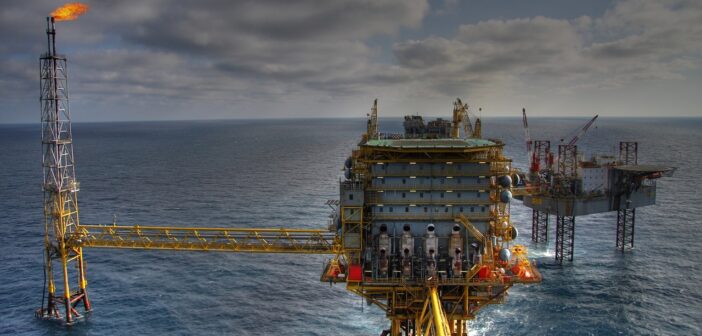credit:https://pixabay.com/
Oil refining has long been a cornerstone of the global energy sector, ensuring the transformation of crude oil into usable fuels and petrochemical products. However, with increasing pressure to improve efficiency, enhance safety, and reduce environmental impact, artificial intelligence (AI) and machine learning (ML) are emerging as transformative technologies in the industry. By leveraging AI and ML, refineries can optimize operations, predict failures, and support sustainable practices. This article explores how AI and ML are revolutionizing oil refining under six unique aspects.
1. AI-Powered Predictive Maintenance in Refineries
Predictive maintenance in the oil refining sector revolutionizes traditional maintenance by shifting from reactive, scheduled inspections to proactive, data-driven strategies. Leveraging advanced AI and machine learning algorithms, it continuously monitors sensor data from machinery, detecting subtle patterns and anomalies that signal potential failures before they disrupt operations. By analyzing vast amounts of historical and real-time data, predictive models can forecast equipment wear and tear, preventing unexpected downtime, which is often costly and dangerous in high-stakes environments like oil refineries. This approach not only slashes maintenance expenses but also maximizes equipment lifespan and enhances safety by addressing potential issues before they lead to hazardous malfunctions. Major industry players like Shell and ExxonMobil have embraced AI for maintenance, reporting impressive gains in operational efficiency, cost reduction, and risk mitigation, proving that AI’s potential in predictive maintenance is both transformative and indispensable for the future of refining.
2. Process Optimization with Machine Learning Algorithms
Oil refining is a multifaceted process that transforms crude oil into valuable products through various stages like distillation, cracking, and chemical treatments. Machine learning (ML) plays a pivotal role in optimizing these processes by continuously analyzing massive datasets generated in real-time, enabling refineries to fine-tune operational variables dynamically. By recognizing patterns and uncovering inefficiencies, AI models suggest specific process adjustments, enhancing output and reducing waste. This ability to predict and prevent performance bottlenecks not only improves product yield but also conserves energy, lowering operational costs. Advanced Process Control (APC) systems, integrated with ML algorithms, empower refinery operators to make faster, data-driven decisions, ensuring more consistent product quality, higher profitability, and more sustainable operations in the highly competitive and energy-intensive oil refining industry.
3. Enhancing Safety with AI-Powered Monitoring Systems
In oil refineries, where safety risks are heightened due to volatile materials and complex operations, AI-driven monitoring systems offer transformative solutions by integrating computer vision, IoT sensors, and advanced real-time analytics. These systems continuously analyze visual data from surveillance cameras to detect anomalies such as gas leaks, mechanical failures, or unsafe behaviors like workers bypassing safety protocols. By leveraging deep learning algorithms, the system can even predict potential equipment malfunctions before they occur, enabling proactive maintenance. Additionally, robotic process automation (RPA) is increasingly used to carry out inspections in high-risk areas, significantly minimizing human exposure to hazardous environments. This combination of AI and robotics not only ensures the early identification of safety threats but also enhances operational efficiency, streamlining workflows and reducing the likelihood of accidents in one of the most dangerous industrial sectors.
4. AI in Quality Control and Product Blending
AI and machine learning are transforming the refining industry by optimizing processes and ensuring the highest quality standards. These technologies enable real-time monitoring of chemical compositions during blending, where AI-driven systems detect minute deviations from the desired specifications, allowing for immediate adjustments to blending ratios. This not only ensures superior product quality but also reduces waste and helps refineries stay in compliance with stringent environmental regulations. Additionally, machine learning models can predict fluctuations in market demand, enabling refineries to adjust production volumes proactively, minimizing excess inventory or shortages. By leveraging AI and ML, refineries can streamline operations, improve efficiency, and meet both regulatory and consumer expectations with greater precision and sustainability.
5. Reducing Environmental Impact with AI-Based Emission Control
As climate change intensifies, the oil refining industry is under growing pressure to significantly cut greenhouse gas emissions, and AI-driven technologies are emerging as critical tools to help meet these demands. Through the use of machine learning algorithms, AI can analyze vast amounts of real-time data from emission sensors, allowing refiners to pinpoint specific sources of excessive pollution with unprecedented accuracy. This data-driven approach not only highlights areas for immediate improvement but also provides actionable recommendations for corrective measures, ensuring more efficient and sustainable operations. Moreover, AI enhances carbon capture and storage (CCS) technologies by fine-tuning the capture process, optimizing the use of resources, and improving overall system efficiency, making the entire process more viable and cost-effective. Major industry players like BP and Chevron are integrating AI into their operations to not only comply with increasingly stringent environmental regulations but also to develop cleaner, more responsible refining practices, ultimately paving the way for a greener future in energy production.
6. Supply Chain and Logistics Optimization with AI
Oil refining is a critical node in the broader energy supply chain, intricately connected to crude oil procurement, refining processes, and the distribution of refined products. AI-powered logistics systems revolutionize this by using advanced algorithms to predict fluctuations in demand, enabling refineries to adjust production in real-time, which minimizes inefficiencies such as overproduction or stockouts. These systems optimize transportation routes, reducing fuel consumption and improving delivery times. Additionally, predictive analytics empower refineries to better anticipate market changes, allowing for more agile decision-making and cost management. The integration of blockchain with AI adds another layer of security and transparency, particularly in crude oil transactions, by creating immutable digital records that reduce the potential for fraud and provide end-to-end traceability. This synergy not only ensures smoother, more efficient operations but also enhances accountability and resilience across the supply chain.
Conclusion
The integration of AI and machine learning in oil refining is driving unprecedented efficiency, safety, and sustainability. From predictive maintenance and process optimization to environmental impact reduction and supply chain enhancements, AI is reshaping the industry’s future. As technology continues to evolve, refineries that embrace AI-driven innovations will gain a competitive edge while meeting regulatory and sustainability goals. The future of oil refining lies in smart automation, data-driven decision-making, and sustainable practices enabled by AI.
References
- BP. (2023). “AI for Sustainable Energy Transition.” Retrieved from https://www.bp.com
- ExxonMobil. (2023). “Digital Transformation in Oil and Gas.” Retrieved from https://corporate.exxonmobil.com
- Shell. (2023). “AI in Refining Operations.” Retrieved from https://www.shell.com
- World Economic Forum. (2022). “AI and Machine Learning in Energy Sector.” Retrieved from https://www.weforum.org
- Chevron. (2023). “Reducing Carbon Footprint with AI.” Retrieved from https://www.chevron.com


